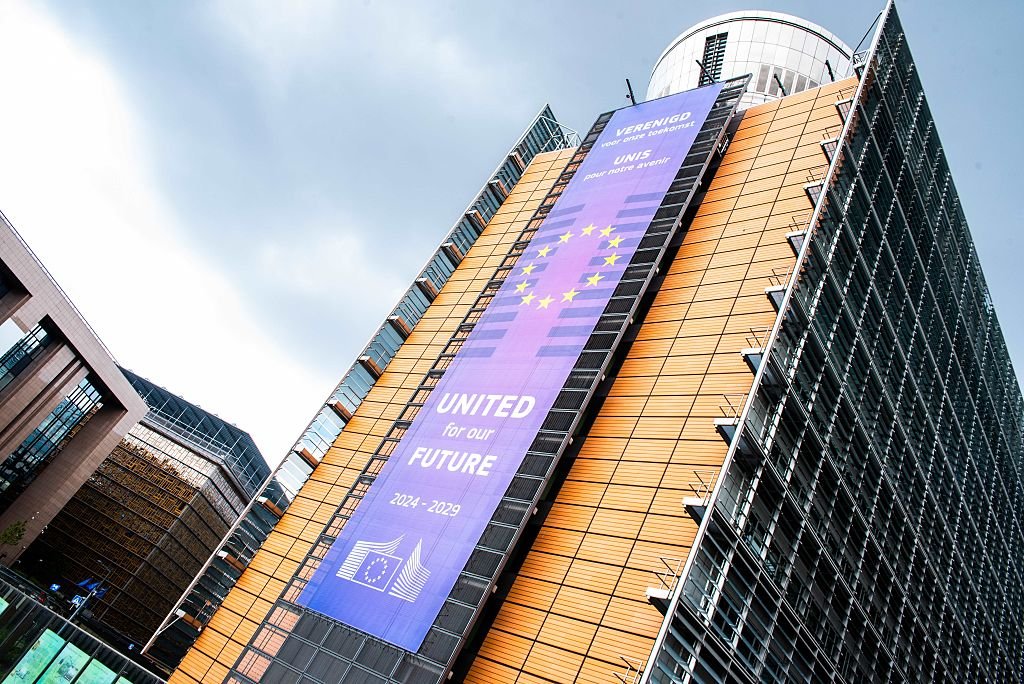Brussels formally proposed slashing tariffs on US industrial and agricultural products on Thursday – a critical step to ensure Washington follows through on its pledge to lower levies on EU car exports.
In a press release, the European Commission said it would “eliminate tariffs on US industrial goods and provide preferential market access for a range of US seafood and non-sensitive agricultural goods”.
It also said it would prolong the duty-free treatment of US lobster exports, and expand it to include processed lobster.
The move is part of the EU-US framework agreement, a legally non-binding pact that falls well short of a traditional trade deal.
Under the terms, the US will reduce its tariffs on EU car exports from 27.5% to 15% “from the first day of the same month” that Brussels proposes legislation eliminating tariffs on “all US industrial goods” and a “wide range” of agricultural products, including dairy products, fruits and vegetables, and seafood.
Lowering the US duties is critical for the EU’s export-dependent auto sector, which is struggling to cope with increasingly competitive Chinese electric vehicles as well as Trump’s tariffs.
The US is the EU’s second-largest car export market after the UK, with 758,000 vehicles worth €38.9 billion shipped across the Atlantic last year, according to the European Automobile Manufacturers’ Association, a Brussels-based industry group.
Under the terms of the framework deal, most of the EU’s €532.3 billion worth of exports are hit with a maximum levy of 15% – lower than the 30% duty previously threatened by Donald Trump but well above the 4.8% levy in force prior to his return to the White House in January.
Several leading MEPs have expressed scepticism about whether the Commission’s proposal will be approved by Parliament. They pointed to the deal’s asymmetrical nature and the fact that the White House has threatened further levies on EU exports since the framework agreement was clinched last month.
A senior Commission official suggested Brussels would suspend the legislative proposal’s imposition if Washington failed to fulfil its promise to slash its auto tariffs.
“Should the US not immediately move to lower its car tariffs, well, in that [case], we still haven’t lowered our tariffs,” they said, adding that Brussels will be “vigilant” about ensuring that it gets the “relief that has been agreed to by the US”.
Another senior Commission official said that, in order to enter into force, the proposal will require the approval of a “qualified majority” of EU countries, i.e. 15 of the bloc’s 27 member states representing at least 65% of its total population.
It will also require the backing of a majority of Parliament’s 720 members, the official added.
Duty-free food and fertilisers
The agreement cuts tariffs on a wide range of US food and agricultural products, though most of them within set quotas. For example, duty-free exports are capped at 25,000 tonnes for pork cuts, 3,000 tonnes for bison, and 10,000 tonnes each for cheese and milk.
For nuts – of all types, fresh or dried, shelled or peeled – the quota is set at 500,000 tonnes, a move likely to anger major European producers, notably in Spain. Soybean oil is capped at 400,000 tonnes.
Fisheries products are also included, with quotas of 5,000 tonnes for shrimp and 20,000 tonnes for Pacific salmon, among other products.
However, some foodstuffs – including certain seeds, frozen fruit and nuts, potatoes, fresh oranges, jams, and prepared plums – face no limits on quantity.
In addition, all categories of fertilisers would be allowed duty-free entry into the EU without restrictions, in an effort to cut dependencies on Russian fertilisers. “[This] reflects the political dynamic of moving away from Russia and ensuring that our farmers have access to affordable fertilisers,” said a senior Commission official.
(mm, aw)





